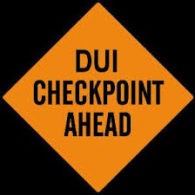Driving under the influence in Vista: The DUI attorney with 30 years of expertise will aggressively fight for your rights in court and at DMV.
Just because you were arrested for a DUI does not mean that you are guilty. You have constitutional rights and remedies.
An experienced criminal lawyer makes a difference in the results of a DUI prosecution.
If you require legal representation that makes a difference, send us a message now, come to the office, or call (760) 806-4333.

Get Out Of Jail. All people arrested for a first time allegation of driving under the influence in violation of Vehicle Code sections 23152(a) and 23152(b) are put in jail. Bail is set at $2500. Most people post bail right away and get out of jail. They are given a notice to appear in court at a future date.
The procedures to get a person out of custody depends on the circumstances of the alleged crime and the present status of the accused, i.e., ties to the community, employment, ownership of property, age, health, prior criminal record, military experience and character references.
Click on the following words to learn more: get out of jail asap.
DRIVING UNDER THE INFLUENCE IN VISTA DEFENSE STRATEGIES
Attorney Pflaum meets extensively with his client in order to learn the details surrounding the investigation, detention and arrest. It is also necessary to learn about the client’s status including employment, ties to the community, professional licenses, education, training, military experience, and mental and physical health. This information may assist the lawyer in resolving the case favorably for you.
Mr. Pflaum also analyzes the criminal file presented by the prosecution including forensic evidence, the police investigation and reports, witness statements, 911 calls, video recordings from police body cameras and patrol units, in order to apply the best defense strategy to win the case for you.
The most common defenses that Mr. Pflaum may invoke to successfully defend his client for an accusation of driving under the influence of alcohol and/or drugs include the following.
- No proof of driving
- Failure to identify the driver
- No legal impairment
- Rising blood alcohol
- No warrant for a blood test
- Faulty chemical testing
- No criminal intent
- Insufficient evidence to prove the charges
- No corroboration by an independent witness
- No identification of the accused as a driver
- Witness bias not to tell the truth
- No proof beyond a reasonable doubt
- Violation of the right to remain silent
- Coerced confession
- Incomplete police investigation
- Inconsistent witness testimony
Other important areas of inquiry that Mr. Pflaum may utilize to defend the case include the following.
The Detention. One important way to defend an accusation of a DUI is to determine whether the police had a valid reason to pull over your car.
If the California Highway Patrol is involved, there should be a video recording of the driver before he or she was pulled over.
If you were arrested by another law enforcement agency, most of them now have body cameras that may be helpful in proving whether the field sobriety tests were done correctly, and that the accused was not under the influence of alcohol.
The video recordings can be very helpful to challenge the reason why the police stopped your car, or prolonged the detention of you longer than was necessary, or the performance on the field sobriety tests.
If a judge agrees that the police had no valid reason to stop your car, or that you performed well on the field sobriety tests, the case may be dismissed.
Sobriety Checkpoint. If you were stopped at a sobriety checkpoint, there are procedures the police must follow in order to obey the law. If the police did not follow the procedures, a judge may dismiss the case.
Field Sobriety Tests. The results of the field sobriety tests can vary from person to person. Most experts agree that field sobriety tests are coordination tests that do not significantly evaluate a person for sobriety.
The police almost always claim that a person “failed” the field sobriety tests, but there are numerous ways to show that a person performed them just fine and the person was not under the influence.
Alcohol Tests. There are three separate tests available to law enforcement: 1) a preliminary alcohol screening (PAS) device; 2) a intoxilizer; 3) a blood test.
The PAS test requires consent, and that the PAS operator have training and calibration logs for the device.
The intoxilizer machine is located at the jail and requires certifications and that the officer observed the client continuously for 15 minutes prior to giving a breath sample and that the machine was tested prior to and after the person gave a breath sample.
A blood test requires the consent of the person who was arrested or a warrant. The results of the sample are not available for 2-3 weeks, and may be retested by an independent forensic toxicologist.
Driving Pattern. The manner in which a person was driving is an important factor. If a person was pulled over for a minor equipment violation, or some other minor infraction, there are jury instructions that will help you possibly win your case.
Statistics show that nearly 95% of driving under the influence cases are resolved prior to trial by way of a plea bargain.
Plea Bargains. A plea bargain is an agreement between the defense lawyer, his client, the judge and the prosecutor to eliminate or reduce the original criminal charges, avoid or minimize the amount of time in prison or jail, and reduce the fines.
A client is under no obligation to accept a plea bargain offer, but nearly all criminal prosecutions begin with the plea bargaining process.
Defense Strengths. Good plea bargains come about because Mr. Pflaum knows his client well, investigates the case, carefully reviews the police reports, the medical records, fingerprints, videos, photographs, tape recordings, 911 calls, forensic evidence, witness interviews, and everything else associated with the case to develop the strengths of a case.
Prosecution Weaknesses. By the same process the attorney develops weaknesses in the prosecutor’s case such as inconsistencies in witness statements, problems with the arrest or the investigation, discrepancies in the conduct of the investigating officers, missing or inconclusive evidence, and problems in the forensic evidence.
Effective Presentation. The criminal defense attorney then makes a persuasive presentation to the judge and prosecutor about the strengths of his client’s case, and weaknesses of the prosecution’s case, to achieve an excellent plea bargain offer for his client.
If the plea bargain offer is accepted by the client and his defense attorney, the case then goes to the next court date for sentencing.
If the plea bargain is not accepted, then the client and the defense attorney continue to aggressively defend the case as it heads towards a trial.
Jury Trial. Some cases, depending upon the client’s preference and the state of the evidence in the case, may proceed to jury trial.
Defenses at trial depend upon whether the client will testify, witness statements, police officer investigation and testimony, expert witness testimony, blood and breath test results, admissions or statements made by the accused, patrol car video tapes, and body worn cameras.
Attorney Pflaum has extensive experience at preparing cases for trial, presenting excellent opening statements and closing arguments, and getting the best possible results.

THE VISTA DUI ATTORNEY FOR JUSTICE
Mr. Pflaum is a relentless legal advocate for his clients. He has the proven skills, experience and dedication to make a difference for you.
Call The Right Defender Now
(760) 806-4333



